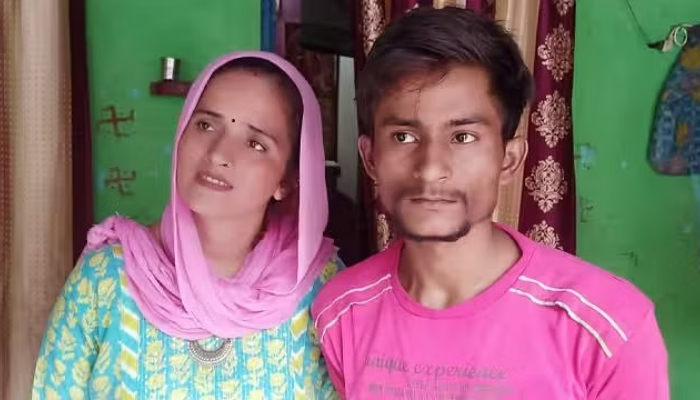It is only three weeks, and in those few days, Islamists in Pakistan have threatened to bomb Christians, damaged Ahmadiyya mosques, attacked Sikhs, killed Shia Muslims and, in the latest, are threatening Hindus.
So, what is the latest provocation for the intolerants in the land of the pure?
The latest trigger is the Seema Haider love story. A daring woman who scripted an audacious once-in-a-lifetime escapade by fleeing her abusive husband in Karachi to get united with her soulmate Sachin Meena in India. Seema’s fairy tale started with PUBG where she fell in love with Sachin, came to Dubai, flew to Kathmandu and entered India illegally to marry Meena.
Radicals in Pakistan are livid at seeing a Pakistani Muslim woman marry an Indian Hindu man and change her faith. There are few stories of interfaith love like Fatima Bhutto’s – author, activist and Zulfiqar Ali Bhutto’s granddaughter, which can open up closed minds.
Pakistan’s extremists are comfortable with abducting 13-year-old Hindu girls, converting them and forcibly marrying them to old Muslim men. They are satisfied with the use of violence and coercion to convert entire families from the Hindu and Christian religions to Islam. Under wraps for many years, the UN pointed out the widespread practice to the Pakistani government at least twice this year.
Seeing one of their own fall in love outside their cosy circle of patriarchy has shaken the extremists to the core.
Seema’s story has punctured a 75-year-old edifice built on hate and intimidation of minorities. Religious conversions play an important role in this as the percentage of Pakistan’s minorities has gone down from 23 per cent in 1947 to a mere three per cent by 2016, and continues to slip.
While Seema’s articulate personality and spectacular escape from Pakistan has spawned its own set of conspiracy theories among Hindu groups in India, it has also led to a violent reaction among the Islamists.
Pakistani journalist Dileep Kumar Khatri tweeted on Sunday that a gang of robbers attacked the houses of the Hindu Bagri community on Saturday night with a rocket and fired indiscriminately. This incident happened days after dacoits in Pakistan threatened to rape Hindus and attack temples if Seema Haider did not return to Pakistan and to her original faith. Terrified Hindus have stopped temple visits after Islamist dacoits posted videos laced with threats against Hindu women.
#BREAKING: Hindu Temple attacked by Bandits in Pakistan in revenge for Pakistani citizen Seema Haidar fleeing to India to marry a Hindu man. Bandits attacked Ghoshpur temple in Kandhkot, Sindh. No casualties reported. Ammunition recovered. Pakistan fails to protect minorities. pic.twitter.com/wOc9x0taku
— Aditya Raj Kaul (@AdityaRajKaul) July 16, 2023
Within India too, Seema Haider, her four children and Sachin, now her husband, are not safe in the confines of their village from Islamists who feel outraged by the renunciation of her faith. The Uttar Pradesh police has now deployed security to protect Seema and Sachin from possible attacks by radicals.
In Mumbai – far from Seema’s house in Karachi and from Meena’s house in Greater Noida – the police is being alerted to a repeat of the 2008 Mumbai attacks. The caller, who dialled from a foreign country and spoke in Urdu, warned of a terror attack if Seema does not return to Pakistan.
Growing radicalisation among Indian Muslims means that while conversions of Hindu women to Islam are to be acted upon and celebrated, an opposite action is met with violence and murders. Numerous Hindu men have been lynched or stabbed to death for marrying or being in love with Muslim women.
Sindh – Pakistan’s economic powerhouse, is known for its rapacious conversions of underage girls from the Hindu and Christian faiths as much as it is known for its thriving businesses.
Kidnapping of minor girls, rapes of minority women and forced marriages is an epidemic that has been given silent approval by the country’s elite – not just politicians but also human rights defenders.
Very few from the Pakistani elite, whether human rights defenders or feminists who protest about enforced disappearances, have condemned the egregious rapes, conversions and marriages of 11-year-old Hindu girls to 50-year-old Muslim men. The Pakistani media, so outspoken at times, has hardly debated the issue.
MashAllah one day whole India will also revert to Islam 😍 https://t.co/x9ZHLpPM8T
— Sehar Shinwari (@SeharShinwari) July 12, 2023
Religious conversions of minorities at gunpoint are celebrated among the masses. Criminals like Mian Mitthu are feted by political leaders and given high security by the Pakistani military for their proactive conversions of minority girls to Islam.
Even the intense debate on the Seema-Sachin love story has not forced the Pakistani masses to look within. Pakistani people are still not discussing why everyday, three to four Hindu and Christian school girls are kidnapped and converted to Islam. Pakistani masses are not discussing why the police intimidates and coerces victims’ families into conversions, why the courts declare underage minority girls as adults and why judges hand over minority girls to rapists.
The Seema Haider case has spotlighted the deeply entrenched twin set of regressive ideologies in Pakistan – control over women and conversions of Hindus. Intolerance for minorities and patriarchy has steeped so deep into the Pakistani psyche that women actors are questioned about religion while others are chided for secular practices.
This fetish for conversions to Islam has fanned a campaign to push Sikhs and Hindus out of their Pakistani homes to India. The race to convert non-Muslims has eliminated the Buddhists, Hindus and Sikhs in Afghanistan. The same hate for Hindus is reaching extreme levels in Bangladesh.
Seema Haider is holding the mirror to the Pakistani society. She has demonstrated that faith-based conversions is not a one-way street and Muslim women too can express their love fearlessly. Her message to doubting and debating Indians is that a cross-border love story can be supported for its message of interfaith harmony and turning around the debate on forcible conversions.














